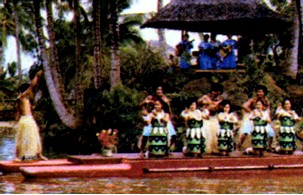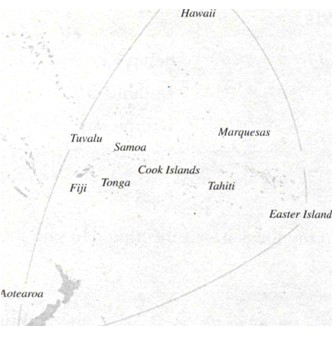-
(单词翻译:双击或拖选)
Some theme parks are not only amusing1 but also educational. Take the Polynesian Cultural Center (PCC) in Hawaii for example. It not only shows visitors the Polynesian way of life but also protects their skills and culture for the future. Polynesia is the name given to the many groups of small islands that are spread about the Pacific Ocean.
The PCC is set in 42 acres2 of beautiful countryside where visitors can see seven different traditional Polynesian island villages. Villagers from many island communities(社团) come to show visitors their styles of dress and different customs3. For example, you can see different skills of the villagers. You can learn how they make clothes from bark (树皮) and how they climb very tall trees with their bare feet or see what kind of wedding ceremonies (庆典) they have. They also tell you about their social customs and show you their cooking methods and their dances.
Their most important skill is boat-building, which allowed the islanders4 to explore all the islands in the Polynesian Triangle. We know that in their history they were sea travellers5 moving from island to island. They were able to find their way using the smell of the wind, the movements of the fish and seaweed, and the height and direction of the waves. They were very clever sailors. Now they use those boat-building skills to make long boats and show the races and battles that they took part in long ago. All this helps keep the skills and technology of the island people alive.

 <
< 收听单词发音
收听单词发音
1
amusing

|
|
| adj.有有趣的,好玩的 | |
参考例句: |
|
|
|
2
acres

|
|
| 英亩( acre的名词复数 ) | |
参考例句: |
|
|
|
3
customs

|
|
| n.海关,关税 | |
参考例句: |
|
|
|
4
islanders

|
|
| 岛民( islander的名词复数 ) | |
参考例句: |
|
|
|
5
travellers

|
|
| n.旅行者( traveller的名词复数 );旅游者;旅客;游客 | |
参考例句: |
|
|
|

















